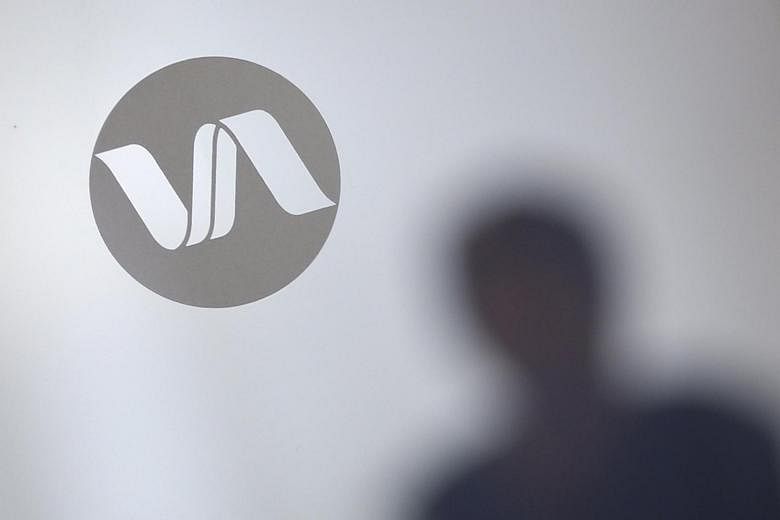SINGAPORE (BLOOMBERG) - Bond investors are indicating they expect Singapore-listed Noble Group's troubles to get worse as a selloff in its notes sent them into distressed territory.
The commodity trader's US dollar bonds due in 2020, its most liquid, dropped 12 cents on the dollar in the last two days to 52.79 cents on Friday (Jan 8), their lowest on record, implying a yield of 26.4 per cent for the company's debt. That puts it on par with issuers such as the Republic of Venezuela and US retailer Toys "R" Us Inc, which rating firms have indicated are likely to miss debt payments in the short term.
Noble has also become the riskiest company in Asia to hedge against nonpayment of debt based on credit-default swaps contracts.
Credit-default swaps tied to Noble have surged in the past month to the highest among Asian corporates, according to data provider CMA. The five-year contracts cost 1,596 basis points, implying a 75.6 per cent probability of default in five years. That means it costs about US$1.6 million annually to insure US$10 million of debt. The one-year swaps are costlier, at just under US$2 million.
"Having an inverted CDS curve is a very worrying signal, it means the market prices a risk of distress in near-term much higher than over a five-year horizon," said Frankfurt-based Sergey Dergachev, a senior money manager who helps oversee US$13 billion at Union Investment and sold his position on the company last year.
"And under current difficult circumstances, with commodity prices severely down, pressure on China growth plus internal problems within Noble, the mix is really unfavorable for the company at the moment."
Standard & Poor's lowered Noble's credit score to speculative grade territory on Thursday, following a similar move by Moody's Investors Service in late December. The rating cuts will test chief executive officer Yusuf Alireza's ability to bolster investor confidence, at a time when he also needs to ensure the Singapore-listed firm maintains access to short-term credit from other commodity houses, necessary for its trading operations.
"The average rating of Noble is now junk, and this forces many investors who can only hold investment grade out of those bonds," said Mr Dergachev. "Some financing lines for Noble may require investment-grade ratings, so there is a risk that losing that status also means difficulties in obtaining liquidity, and that is precarious for Noble."
S&P cut Noble Group's rating to BB+ from BBB- and placed it on watch for a further possible downgrade. Both it and Moody's cited liquidity as one of the issues that prompted the move. S&P also said that "the outlook for the company's capital raising could be complicated by depressed commodity markets." Noble shares fell as much as 10 per cent in Singapore on Friday to the lowest since 2008.
Noble's external press relations advisers at Bell Pottinger were not immediately able to respond to a request for comments on the company's bond movements.
The company said an increase in collateral calls, or demands that it set aside more cash to guarantee trades after the credit rating downgrades, was still below the US$100 million to US$200 million range that Alireza estimated in comments to analysts last year. The firm also does not expect S&P's action "to have a material impact" on operations, it said in a statement on Thursday.
"These collateral calls would come from their trading counterparties and I doubt anyone who has been watching the company wouldn't have already required additional collateral," said Mr Andy DeVries, an analyst at Creditsights in New York. He said that high credit-default swap costs may also imply a lack of confidence in the company's future.
"Since it's hard to short the bonds, some counterparties could be buying CDS to protect their exposure to the company," Mr DeVries said.

